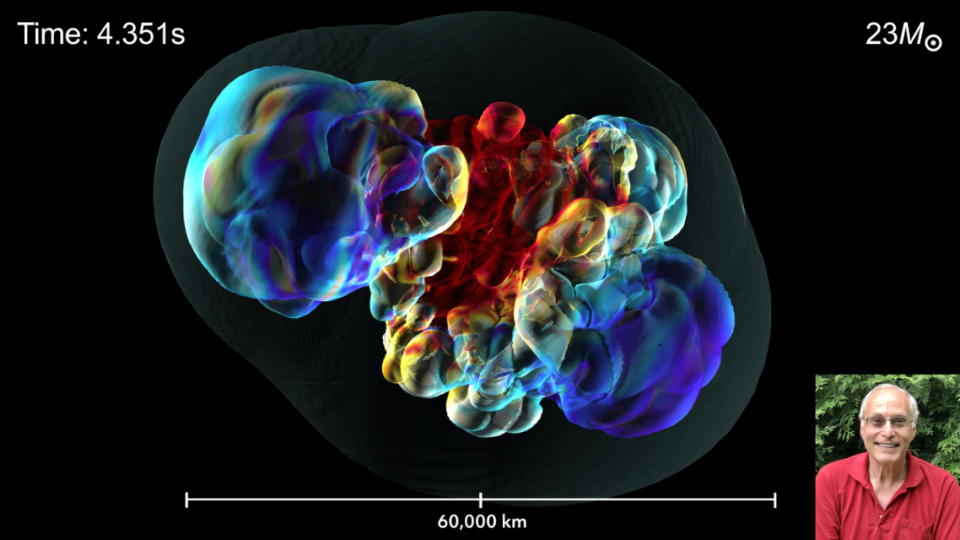Martin Wood Complex, Department of Physics, University of Oxford, Parks Road, Oxford, OX1 3PU
Professor Adam Burrows, Department of Astrophysical Sciences, Princeton University
Understanding supernova explosions with sophisticated computer simulations
Professor Adam Burrows, Department of Astrophysical Sciences, Princeton University
Abstract:
During the lifetime of our Milky Way galaxy, there have been something like 100 million supernova explosions, which have enriched the Galaxy with the oxygen we breathe, the iron in our cars, the calcium in our bones, and the silicon in the rocks beneath our feet. But over a human lifetime they are rare with roughly one occurring every 100 years. We study them by surveying many distant galaxies. The energies released in the explosion allow us to detect them deep into the visible Universe. Most supernovae come from the death of massive stars, when after millions of years of evolution the core of a such a star collapses in seconds to inaugurate a supernova explosion and stellar disassembly. Now, for the first time in history we can carry out 3-Dimensional computer simulations to understand the complex physics as the core collapses, explodes, and litters the medium between the stars with the products of existence. I will describe the largest collection of 3D explosion models ever generated and how this gives us new insights into the energy of such explosions, the neutron stars and black holes birthed, and the yields of the chemical elements.
The Hintze lectures highlight contemporary developments in astrophysics and cosmology and are generously funded by the Hintze Family Charitable Foundation
Join us in-person or online
This public lecture is free to attend in person (no prior registration required; attendees to be seated by 4.50pm) and will also be livestreamed at the following link: https://zoom.us/j/95132385730

